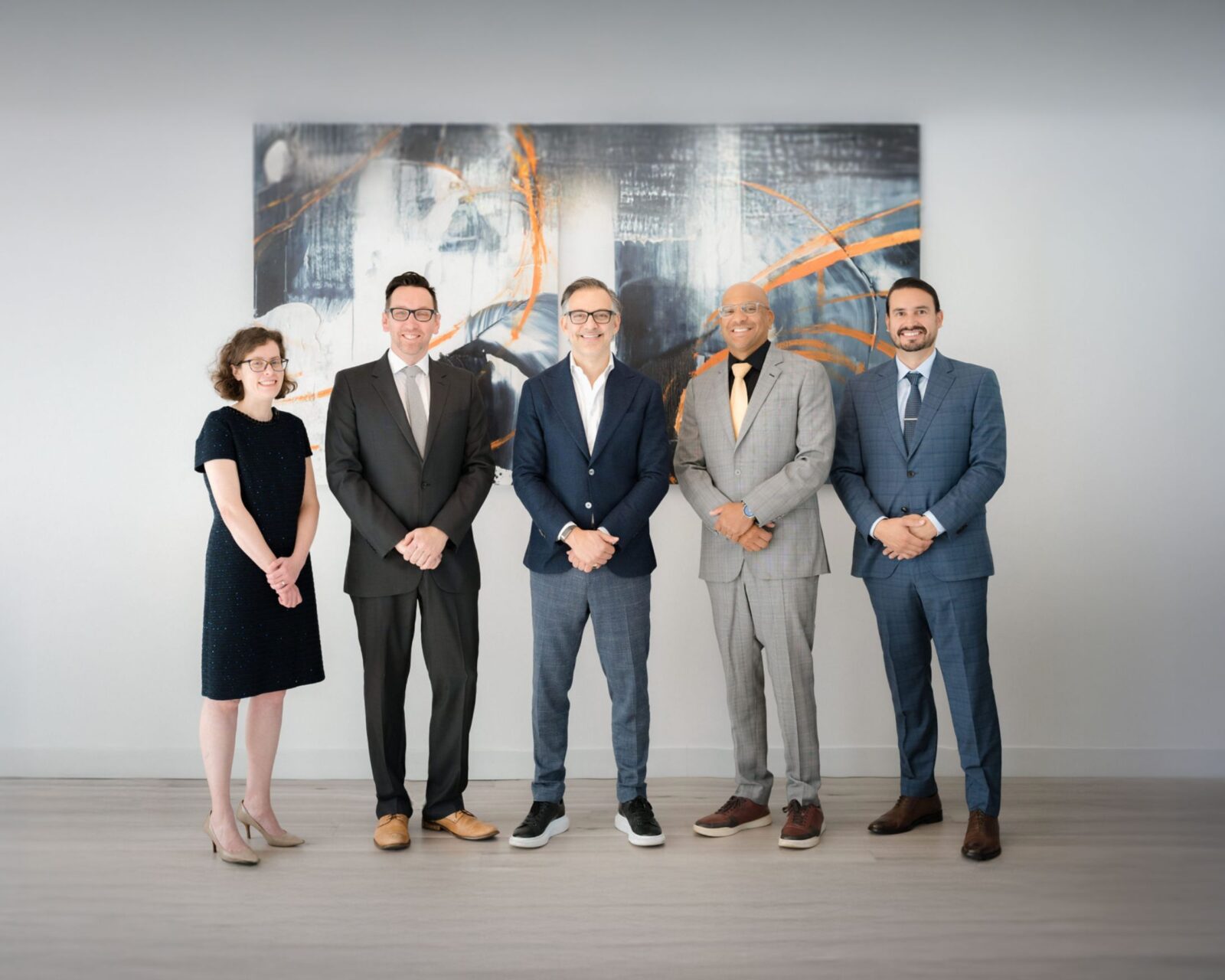MCL Treatment New Jersey
The Knee Center
at Modern Orthopedics of New Jersey
Paramus
72 Route 17 North
Paramus, NJ 07652
Wayne
2025 Hamburg Turnpike
STE C, Wayne, NJ 07470
Parsippany
3799 US-46
#207, Parsippany, NJ 07054
A medial collateral ligament (MCL) tear is the most common type of knee ligament injury. Often seen in athletes such as basketball players, football players, rugby players, skiers, etc., it can impact both the function and stability of the knee joint. An MCL injury may be caused by a direct blow to the outside of the knee as well as by a high-speed change in direction or a poor landing from a jump. In some cases, the injury may also occur due to wear and tear of the MCL over time.
At Modern Orthopaedics of New Jersey, MCL treatment is one of our areas of expertise. We regularly work with patients who have experienced mild to severe MCL tears and possess the knowledge and skill to accurately diagnose and treat this type of injury. In every case, we tailor treatment options to the specific needs and health goals of our patients.
If you are experiencing pain, stiffness, and/or limited range of motion on the inside of your knee joint, an MCL injury could be the underlying cause. To receive a definitive diagnosis and move forward with a personalized treatment plan that will put you on the fastest road to recovery, schedule an initial consultation with the Modern Orthopaedics of New Jersey team today!


A medial collateral ligament (MCL) tear is the most common type of knee ligament injury. Often seen in athletes such as basketball players, football players, rugby players, skiers, etc., it can impact both the function and stability of the knee joint. An MCL injury may be caused by a direct blow to the outside of the knee as well as by a high-speed change in direction or a poor landing from a jump. In some cases, the injury may also occur due to wear and tear of the MCL over time.
At Modern Orthopaedics of New Jersey, MCL treatment is one of our areas of expertise. We regularly work with patients who have experienced mild to severe MCL tears and possess the knowledge and skill to accurately diagnose and treat this type of injury. In every case, we tailor treatment options to the specific needs and health goals of our patients.
If you are experiencing pain, stiffness, and/or limited range of motion on the inside of your knee joint, an MCL injury could be the underlying cause. To receive a definitive diagnosis and move forward with a personalized treatment plan that will put you on the fastest road to recovery, schedule an initial consultation with the Modern Orthopaedics of New Jersey team today!
What Is A Medial Collateral Ligament (MCL) Injury?
Also known as the tibial collateral ligament, the medial collateral ligament (MCL) is a band of fibrous tissue that attaches the inner femur (thigh bone) to the inner tibia (shin bone). It provides stability to the medial area of the knee (the area closest to the center of the body) and prevents this portion of the knee joint from opening, gapping, or otherwise experiencing an excess range of motion. The MCL is also connected to the medial meniscus and, for this reason, MCL and meniscus injuries often go hand in hand. It is one of four ligaments that hold the knee joint in place, the other three being the lateral collateral ligament (LCL), the anterior cruciate ligament (ACL), and the posterior cruciate ligament (PCL).
The most common reason for an MCL injury is a direct impact to the outside of the knee, but other causes can include forcefully changing direction at high speed, lifting heavy objects, landing awkwardly from a jump, hyperextension of the knee joint, or repeated stress and pressure on the MCL, which compromises its strength and integrity over time.
MCL injuries can range from mild to severe, depending on the extent of tearing that has occurred within the ligament. They are categorized as follows:
- Grade 1 – The MCL is stretched but not torn.
- Grade 2 – The MCL is partially torn.
- Grade 3 – The MCL is completely torn through.
- Grade 4 – Other structures, such as the ACL or meniscus, are also torn or damaged.
Diagnosis Of MCL Injuries
An MCL tear is diagnosed by considering how the injury occurred along with the symptoms the patient is experiencing. A thorough physical examination will include a valgus stress test where the knee is bent and pressure applied to its outside surface to check for pain and/or laxity (looseness) in the joint. Diagnostic imaging tests such as X-rays, CT scans, or MRI might also be ordered to better visualize the affected area and check for fractures and/or damage to other nearby structures.
Common symptoms of MCL injuries include:
- Pain, swelling, and tenderness along the inner knee
- Stiffness and/or limited range of motion in the knee joint
- A popping sound or sensation at the time of injury
- The knee joint catches or locks up during movement
Non-Surgical MCL Treatment Options
In many cases, MCL injuries can be effectively treated using conservative, non-surgical approaches. These may include:
- Rest
- Icing
- Immobilization (knee brace)
- Physical therapy
- Pain management
MCL Reconstruction & Surgical Treatments
If an MCL tear is causing chronic instability in the knee joint and has not responded to conservative treatment options, a surgical solution may be considered. Depending on the circumstances, the ligament may be repaired or reconstructed using tissue harvested from the hamstring or Achilles tendon.
For further information about which type of surgery may offer the best outcomes based on your particular situation, book an appointment with the world-class team at Modern Orthopaedics of New Jersey.
Postoperative Recovery & Rehabilitation
The length of recovery after MCL surgery depends on a variety of factors including the severity of the injury, the type of surgery performed, and the age and overall health of the patient. In most cases, a recovery period of several weeks up to several months is to be expected. During recovery, active participation in physical therapy and rehabilitation is necessary to regain strength and flexibility and ensure the best possible outcome.
Why Choose Modern Orthopaedics Of New Jersey For MCL Treatment/Reconstruction
Modern Orthopaedics of New Jersey is a state-of-the-art orthopedics clinic where innovative treatment options and exceptional patient care are our top priorities. Our award-winning doctors are leaders in their specialties and possess the expertise and experience to help you move forward from an MCl injury with the utmost skill and compassion. Contact us today to schedule an appointment! We look forward to meeting you.



A Different Orthopedic Experience.
We combine cutting-edge technology with personalized care to deliver exceptional orthopedic treatment. Our team of experts focuses on your unique needs to ensure optimal outcomes and a superior healing experience.
Our Approach to Care
Comprehensive solutions for your orthopedic needs
Treatment Diversity
We offer a comprehensive range of treatments, ensuring personalized, targeted plans for every patient.
Technological Excellence
We utilize cutting-edge technology for precise diagnosis and innovative treatment options.
Collaborative Care
Our multi-disciplinary approach involves various specialties to provide comprehensive care and recovery.
Skilled Experts
Our team is composed of highly skilled, experienced orthopedic professionals, providing expert care.
Patient Focus
We prioritize patient comfort and satisfaction, creating a supportive environment for optimal healing.
Post-Treatment Support
Our robust post-treatment support ensures ongoing patient care through recovery and rehabilitation services.